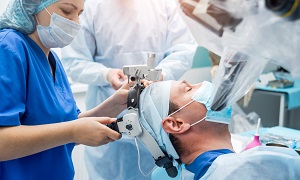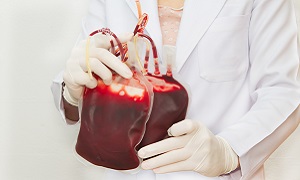Best Doctors in India for Neuroblastoma Treatment
Best Hospitals in India for Neuroblastoma Treatment
- City: Mumbai, India
Hospital Highlights:
- Fortis Hiranandani hospital was established in 2007.
- The hospital is an advanced tertiary care, multi-specialty hospital equipped with 149 beds.
- The hospital is equipped with a super ICU to provide emergency medical care to critically ill patients.
- The hospital is NABH accredited.
- The critical care facility in the hospital is augmented with the state-of-the-art facilities that facilitate speedier diagnosis and efficient monitoring.
- The hospital provides specialty medical services in cardiology, orthopedic science, pediatric science, neurology, diabetic care, urology, nephrology, ENT, obstetrics, gynecology, cosmetic surgery, bariatric surgery, neuro and spine care.
- City: Gurugram, India
Hospital Highlights:
- W Pratiksha Hospital, Gurugram, is one of the best hospitals in the NCR region. It is also a top hospital in India for IVF. Since its inception, the hospital has performed over 5500 successful IVFs. The hospital also specializes in gynecology.
- With over 20 years of experience in providing quality healthcare, the hospital is known as one of the most trusted and valued health providers in India.
- Equipped with world-class medical facilities and advanced technology, the hospital’s doctors and clinicians also have a track record of delivering excellent results. The hospital is also known for focusing on preventive well-being as much as on curative treatment.
- The hospital has earned the trust of its patients, by providing the best available treatments at affordable costs.
- City: Gurugram, India
Hospital Highlights:
- Paras hospital was established in 2006 and is the 250 bedded flagship hospital of Paras Healthcare.
- The is supported by a team of doctors of international and national repute.
- The hospital is NABH accredited and also the first hospital in the region to have a NABL accredited laboratory.
- The hospital provides specialty medical services in around 55 departments including Neurosciences, Joint Replacement, Mother & Child Care, Minimal Invasive Surgery, Gynecology and Obstetrics, Ophthalmology, Dermatology, Endocrinology, Rheumatology, Cosmetic and Plastic surgery.
- The hospital is equipped with state-of-the-art technologies.
- City: Kolkata, India
Hospital Highlights:
- Fortis Hospital, Anandapur, Kolkata is a world-class super-speciality equipped with the latest technologies in the medical world.
- The hospital is NABH accredited.
- This state-of-the-art facility specializes in cardiology and cardiac surgery, urology, nephrology, neurosciences, orthopaedics, digestive care, emergency care and critical care.
- The hospital, governed by integrated Building Management System (IBMS), has a pneumatic chute system, for quick vertical and horizontal transportation between floors, facilitating speedy transfer of patient specimens, documents, reports, and medicines to the concerned departments.
- The hospital also has a nephrology department with over 28 advanced dialysis units.
- City: Mumbai, India
Hospital Highlights:
- SL Raheja hospital is a 140-bed multi-specialty tertiary care hospital that is being managed by Fortis Healthcare Ltd.
- The hospital is a benchmark in healthcare and medical facilities in the neighborhood of Mahim & the western suburbs.
- L.Raheja Hospital, Mahim has one of the most effective ICU and Casualty care services.
- The hospital provides specialty medical services in Cardiology, Oncology, Neurology, Orthopedics, Mother & Child Care, and in Diabetes.
- City: Mumbai, India
Hospital Highlights:
- Wockhardt Hospitals were established in the year 1973, originally called First Hospitals and Heart Institute.
- Wockhardt Hospitals are super specialty health care networks in India, nurtured by Wockhardt Ltd, India’s 5th largest Pharmaceutical and Healthcare company.
- Wockhardt Hospitals is associated with Partners Harvard Medical International, an international arm of Harvard Medical School, USA.
- Wockhardt Heart Hospital performed India’s first endoscopic heart surgery.
- The hospital has a state-of-the-art infrastructure equipped with the latest technologies and modern equipment.
- It has special Centers of Excellence dedicated to the major specialties to provide hassle-free and high-quality clinical care.
- City: Gurugram, India
Hospital Highlights:
- The CK Birla Hospital in Gurugram is a NABH-accredited multi-specialty hospital.
- The hospital strives to increase the quality of healthcare by focusing on UK NHS nurse and midwife training requirements. Policies and practices derived from the National Institute for Health and Treatment Excellence (NICE) recommendations in the United Kingdom ensuring that a strong focus on safety, high-quality clinical care, and sanitation is maintained.
- The hospital’s cutting-edge technology and facilities allow for real-time communication and seamless collaboration among caregivers, ensuring accuracy and the best possible results. Those with foreign experience and accreditations make up part of the hospital’s team of clinicians.
- City: Ahmedabad
Hospital Highlights:
- As a member of the Apollo Hospitals Group, Apollo Hospitals International Limited, Ahmedabad is one of the most popular and sought-after medical facilities in Gujarat.
- Through its 6 Centres of Excellence and various affiliated branches, which cover all specialties and subspecialties, the hospital provides the most advanced clinical services.
- Since its inception in 2003, the hospital has been providing each patient with the most up-to-date medical equipment and state-of-the-art technology.
- With more than 150 successful organ transplants, including liver and renal transplants, the facility has been able to build a strong and extensive organ transplant program.
- In addition to performing 600 surgeries and caring for over 1800 patients on an IP basis, the hospital sees more than 18,000 patients on average in the outpatient department.
- With one of the biggest cardiology teams in the area, the hospital provides state-of-the-art regional care treatment in Cardiac Sciences.
- Additionally, the hospital offers a broad range of Neuro Interventional techniques to help stroke patients recover more quickly.
- City: Noida, India
Hospital Highlights:
- Jaypee Hospital is the flagship hospital of the Jaypee Group.
- This hospital has commissioned 525 beds in the first phase and has been planned and designed as a 1200 bedded multi-specialty facility.
- It holds the accreditation of the NABH and NABL.
- The hospital has state-of-the-art infrastructure equipped with the latest technologies and modern equipment like 64 Slice PET CT, Dual Head 6 Slice SPECT CT, Gamma Camera, and Da Vinci Robotic Surgery for comprehensive robotic surgical solutions.
- It has special Centers dedicated to the major specialties to provide hassle-free and high-quality clinical care.
- City: Mumbai, India
Hospital Highlights:
- Reliance Hospital is one of the best super-specialty care hospitals in Navi Mumbai.
- The main purpose of this hospital is to become a trustworthy place for the best health and hope for society. The hospital is well connected to the suburbs of Mumbai and Navi Mumbai.
- The hospital has various specialty departments, viz., Accident & Emergency, Anesthesiology, Dental Services, Dermatology, Diabetology, Dietetics Nutrition, Endocrinology, ENT, Gastroenterology, General Surgery, Gynaecology And Obstetrics, Hepato Pancreato Biliary Surgery, Infectious Disease, Internal Medicine, Interventional Radiology, Laboratory Medicine, Minimal Access Laparoscopic Surgery, Nephrology, Neurosciences, Opthalmology, Orthopaedics, Paediatrics, Pain Management Palliative Care, Physical Medicine Rehabilitation, Plastic And Reconstructive Surgery, Psychiatry, Pulmonary Medicine, Radiology, Rheumatology, Transplant, Urology Andrology, Vascular Surgery
Neuroblastoma
Neuroblastoma is a type of cancer that is caused by immature nerve cells that are found in different areas of the body. This condition commonly arises in and around the adrenal glands. However, it may also occur in other areas of the abdomen as well as in the chest, neck, and near the spine, where groups of nerve cells exist.
Commonly neuroblastoma affects children who are five years of age or younger, but it sometimes occurs in older children as well.
Certain forms of neuroblastoma disappear on their own, but others may require multiple treatments. Treatments generally depend on several factors.
Symptoms
The signs and symptoms of neuroblastoma can vary depending on the part of the body being affected.
Neuroblastoma in the abdomen: The most common form of neuroblastoma is neuroblastoma in the abdomen, which can cause signs and symptoms such as-
- Abdominal Pain
- A mass under the skin which isn’t tender when touched
- Changes in bowel habits, such as diarrhea or constipation
Neuroblastoma in the chest: This causes signs and symptoms such as –
- Chest pain
- Wheezing
- Changes to the eyes; this can include drooping eyelids and unequal pupil size
Other signs and symptoms that might indicate neuroblastoma include the following-
- Lumps of tissue under the skin
- Eyeballs that seem to protrude from the sockets
- Fever
- Unexplained weight loss
- Dark circles, similar to bruises, around the eyes
- Back pain
- Bone pain
If your child is showing any signs and symptoms that you find worrisome, then you need to consider seeing your doctor.
Causes & risk factors
Cancer generally begins with a genetic mutation that allows normal and healthy cells to continue growing without responding to the signals to stop, which normal cells do. Cancer cells continue to grow, eventually multiplying out of control. The accumulating abnormal cells eventually end up forming a mass or a tumor.
Neuroblastoma begins in neuroblasts, which are immature nerve cells that form on a fetus as part of its development process. As the fetus matures, neuroblasts turn into nerve cells and fibers as well as the cells making up the adrenal glands. Most neuroblasts mature by birth, but sometimes a small number of immature neuroblasts are found in newborns. In most cases, these neuroblasts mature or eventually disappear within some time. Others, however, form a tumor, which is termed neuroblastoma.
The initial genetic mutation that leads to neuroblastoma is still unknown.
Several lifestyle factors like body weight, physical activity, diet, and tobacco use are known to play a major role in several types of cancers. These factors, however, take many years to influence cancer risk, and therefore, they are not considered to play much of a role in childhood cancers, like neuroblastomas.
There are also no environmental factors are known to increase the chance of getting neuroblastoma.
Children who have the familial form of neuroblastoma, usually come from families having one or more members who have had neuroblastoma as infants.
Children having familial neuroblastoma can sometimes develop two or more of these cancers in different organs. For example, they can develop it in both adrenal glands or in more than one sympathetic ganglion.
According to certain studies, children with birth defects might have an increased risk of developing neuroblastoma. It is possible that some of the links between birth defects and neuroblastoma might be related to changes in genes that happen during fetal development.
Diagnosis
For the diagnosis of neuroblastoma, your doctor might use the following tests and procedures-
Physical Exam
Urine and Blood Tests
Imaging Tests

Imaging tests such as CT scan, X-RAY, MRI, or MIBG scan can help to reveal a mass which can indicate a tumor.
Biopsy

If a mass is found, your child’s doctor is likely going to remove a sample of the tissue for laboratory testing. This is known as a biopsy.
Removing a sample of bone marrow for testing
Your child might also need to undergo bone marrow biopsy and bone marrow aspiration procedures, as this can help to see if the cancer has spread to the bone marrow.
Once the neuroblastoma has been diagnosed, your doctor might need to do further testing to determine the extent of the cancer and to see how far it has spread.
The stages are indicated from O to IV. The lower the stage is, the less severe the cancer is. By stage IV, the cancer is considered to be advanced and have spread to other areas of the body.
Treatment
Your child’s doctor is going to select the treatment plan based on several factors. Factors can include the age of your child, the stage of your cancer, the type of cells involved in the cancer, and whether there are any abnormalities in the chromosomes and genes.
Treatment options can include any of the following:
Surgery

Surgery involves surgeons removing cancer cells surgically, with the help of scalpels and other tools. In children with low-risk neuroblastoma, surgery to remove the tumor is usually the only treatment needed.
Whether your doctor can remove the tumor completely, depends on the location and size of the tumor. Tumors that are attached to nearby vital organs, like the lungs or the spinal cord, might be too risky to remove.
If the neuroblastoma is intermediate or severe, surgeons generally try to remove as much of the tumor surgically, after which other treatments such as chemotherapy and radiation might be used to kill the other remaining cancer cells.
Chemotherapy

This treatment involves using chemicals to destroy cancer cells. Unfortunately, this treatment also damages healthy cells, which can include the cells in the hair follicles and in the gastrointestinal system, which can cause side effects.
Radiation therapy
Radiation therapy uses high-energy beams, such as X-rays, in order to destroy cancer cells. Children with low-risk or intermediate-risk neuroblastoma might go for this treatment. It is generally considered if surgery and chemotherapy are unsuccessful. Children having severe neuroblastoma might also need radiation therapy after chemotherapy and surgery to prevent the cancer from occurring again.
However, it is important to note that though radiation therapy affects the area where it is aimed, some healthy cells may be damaged by the radiation as well.
Immunotherapy
Immunotherapy is a treatment method that uses drugs that work by signaling your body’s immune system to fight cancer cells.
BMT
Children suffering from severe neuroblastoma might need to receive a transplant using stem cells collected from bone marrow
Before BMT, which is also known as stem cell transplant, the child will need to undergo a procedure that filters and collects stem cells from his/her blood. The stem cells are stored for later use. Then high doses of chemotherapy are administered to kill any remaining cancer cells in the body. The child’s stem cells are then injected into your body, where they are now able to form new, healthy blood cells.
Complications
Neuroblastoma can lead to the following complications:
Spread of cancer – Neuroblastoma can spread or metastasize to different parts of the body, such as the lymph nodes, liver, bone marrow, skin, and bones.
Spinal Cord Compression – Tumors can grow and press on the spinal cord, which can cause spinal cord compression, which may further lead to pain or even paralysis.















